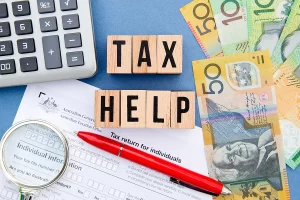It is a requirement for pretty much every business in Australia to submit a Business Activity Statement (BAS) to the Australian Tax Office (ATO). A BAS is a reporting which contains information about the types of taxes a business might need to pay.
There are also financial penalties handed to businesses who don’t pay a BAS promptly and who fail to submit a BAS to the ATO. Your BAS can be submitted either online, via mail or over the phone. Accounting software such as Xero can also make it easier for you to complete your BAS as efficiently as you possibly can.
Generally speaking, the ATO will issue a BAS on a monthly or quarterly basis. It will report things such as; a business’s goods and services tax (GST), Pay as you go (PAYG) instalments and other tax obligations such as; PAYG withholding tax.
Here is some important information about the types of taxes that a business has to pay via a BAS.
Goods and Services Tax (GST) – The GST can be best described as a value-added tax of 10 percent that is placed on most goods and services. There are some cases where exemptions are given to certain businesses.
A GST credit can be claimed at any time within four years following the time you meet the relevant requirements.
Pay As You Go (PAYG) – PAYG instalments consist of payments that need to be made towards a business’s anticipated end of year income tax liability.
You have the opportunity to choose between an instalment rate or an instalment amount. The ATO will figure out the instalment amount based on the information you have provided in your most recent tax return.
In comparison, an instalment rate is determined by the business itself based on the actual amount of income it has earned by using the ATO’s instalment rate.
In most cases, the ATO will send PAYG instalments via an instalment notice instead of via a BAS.
Fringe Benefits Tax (FBT) –Fringe Benefits Tax is a tax separate from income tax. An FBT is a tax that an employer will pay for certain benefits they offer to their employees and he family members of their employees and other associates.

Some of these benefits include; allowing employees to use their work car for private use or paying for their employee’s gym membership. If a business has to pay $3,00 worth of FBT or more during a certain financial year it needs to include this in it’s BAS and also in it’s pay quarterly.
Luxury Car Tax (LCT) – The Luxury Car Tax (LCT) is a tax that is applied to all importations and supplies of luxury cars where the value including GST is an excess of the LCT threshold.
The ATO is responsible for determining the threshold and the threshold is subject to change. At the present time, the LCT sits at 33 percent and applies to the percentage of the car’s value that is above the threshold as opposed to the total value of the car.
There will be some situations where you might be able to defer paying the LCT if you are able to meet certain criteria that has been determined by the ATO.
This might also include if you plan to use the car to;
- Hold the car for trading stock (not including holding it for lease or for hire).
- To undertake research and development for the cars manufacturer
- Or to export it GST free.
Wine Equalisation Tax (WET) – The WET is a tax that is only applied to wine manufactures, wine importers and wine wholesalers. This tax is based on the value of the wine. At the present time the WET sits at 29 percent of the taxable value of wine.
Fuel Tax Credits (FTC) – A fuel tax credits offer businesses with a credit for the fuel tax (customs duty or excise) included in the fuel price they use in plant equipment, machinery and heavy vehicle for business related purposes.
The rate for the FTC will vary from time to time. This means that it is crucial to check with the ATO to find out what the current rates are any time that a business wants to make a claim.
The credit amount will depend on a large range of factors such as; when you acquire the fuel, the activity you use the fuel in and what type of fuel you use.





